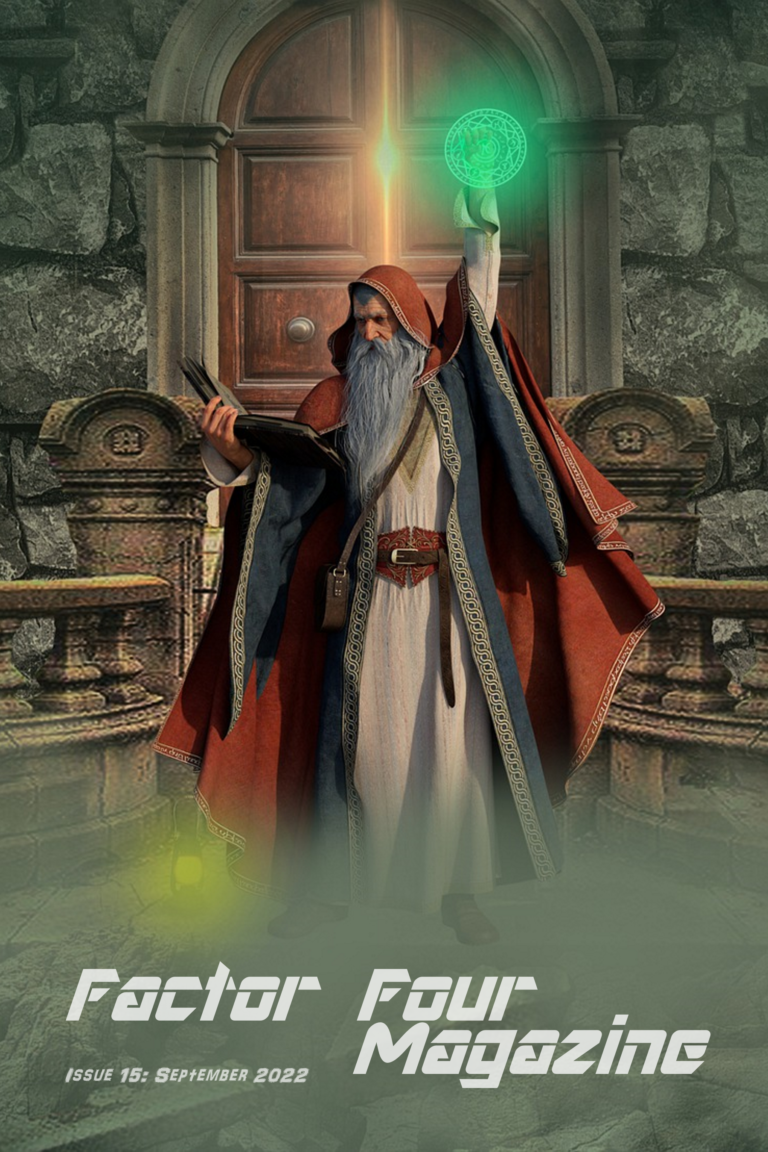Memories In Winter by Rebecca Birch

The steady ticking of the carved wall-clock had always been a part of Mellyn’s world–enough that she hardly noticed it–but now, with the fire’s last light fading toward the long-winter, the implacable rhythm made her heart race.
Mellyn glanced its way. Just one last look.
In the moment of distraction, her embroidery needle bit into her finger pad.
She hissed and jabbed her finger in her mouth to suck, turning a guilty gaze toward Grandmother, on the opposite side of the hearth, working at her own hoop, despite her cloudy vision and the failing light.
Grandmother’s stitching rhythm didn’t falter. “Is the memory damaged?”
Mellyn inspected both sides of her stretched linen. No blood. “It’s pure.”
“Blessed be.”
The last logs in the hearth settled and snapped. There’d be no more once they burned themselves out. Nothing could kindle in the long-winter.
Mellyn peered out the window. Darkness pressed silent and heavy as packed snow in the depths of short-winter. They’d breakfasted not an hour past, in a dark just as crushing. Mellyn shivered. At sixteen, this would be her first long-winter. By the time spring returned, she’d be nearly eighteen.
She pulled her finger from her mouth. It no longer bled, so she again took up her needle.
“Go carefully,” Grandmother said. “Better an incomplete memory than a bloodied one.”
“I’ll finish.”
Mellyn needed this memory. The cream-and-gold flowers blooming upon her linen had carpeted the glen on the last feastday, painted with dappled sunshine and the warmth of Connor’s smile over the brim of his mug of hot cider.
A good memory. One with a promise.
Mellyn set her finished square in the memory basket with the rest, collected over the last few years in readiness for the long-winter.
Grandmother had finished earlier and now they sat side by side, silent and still.
Mellyn picked at her skirt. Had they preserved enough food? Salted enough meat? The cellar was filled and she had carefully committed the rows of canning jars, cheese-wheels, sacks of dried fruit, and other goods to memory, so she could find what she needed once the dark set in. Grandmother had lived through four long-winters, and she said it was enough, but her memory had been uncertain of late, as clouded as her eyes.
The smoldering coals extinguished with a sudden hiss, plunging them both into a darkness so complete, Mellyn couldn’t see her own lap. The clock went silent. For a breathless moment there was no sound at all but the rush of blood in Mellyn’s ears.
Grandmother pressed a linen square into Mellyn’s hand. “It’s time. Stretch this on the pegs above the hearth.”
Moving by touch, Mellyn obeyed. With the first corner hung, the crisp scent of apple blossoms filled her nose. The second corner brought the hint of a warm breeze. Third, the buzz of bees and, as the last corner slipped into place, a phantom glow, filled with the ghosts of swaying branches, gently illuminated the cottage. One of Mellyn’s memories.
Grandmother smiled. “A good memory to begin.”
They counted time in memories.
With no way to number the hours, Mellyn couldn’t guess how long each memory lasted, but it couldn’t be more than a few days. Slowly, the illumination would dim, sounds and sensations faded, and smells became no more than memories of memories.
Only then would Grandmother hand Mellyn the next square. So far, every one had been Mellyn’s. They ate sparingly and drank little, trudging out into the snow, clinging to their guide-ropes, to refill barrels, or for other necessities, as infrequently as they could.
Sometimes Grandmother rocked side to side, quietly muttering.
Sometimes Mellyn struggled to bring her back from wherever her mind wandered.
She couldn’t help but wish Grandmother had allowed her to accept Connor’s offer to winter over with them, but Grandmother had been firm. Until Mellyn was wed, no man would sleep beneath their roof, even if they took oaths to live as nothing more than cottage companions. Sixteen was still a child.
A day came when Mellyn couldn’t rouse Grandmother enough to pick out the next memory. It felt wrong, selecting one herself–that was Grandmother’s place–but it had to be done.
The very first corner felt wrong. A pungent smell of smoke choked the air. With the second corner came a chill that settled deep in Mellyn’s bones. Third, an aching, hollow wail. Fourth, a scarlet haze bathing both women in blood.
Grandmother startled, eyes wild. “Not mine, Mellyn!” She pressed her hands over her ears. “I tried, but I can hardly see any more and my fingers are so numb I don’t know when I’m bleeding.” She began to sob.
Mellyn closed her eyes against the blood-light and gathered Grandmother to her, shocked at how frail she felt, trembling in her arms. “Don’t fret,” Mellyn crooned. “I’ll hang another.”
“A memory hung is hung, and once lived, the old will be forgotten.”
The blood-stained memory raged–the cold unrelenting, the screams unescapable. Unbearable.
Mellyn’s bellyful of sharp cheese and hazelnut curdled in her gut. What memory had been lost to this horror?
Grandmother’s tears soaked into her bodice and Mellyn pulled her closer. “We’ll make our own memory. Sing with me.”
Together they sang–every lullaby, every ballad, every air–until they had to begin again. Rocking side to side, two women against the memory, until Mellyn’s voice was nothing but rasp and wind. Until the blood-light dimmed and, at last, it was time to hang a new memory.
A treasured memory.
Hot cider smell filled the room with the first corner, then sun-dappled warmth. Cheerful voices and Connor’s smile that promised a new spring.
Enfolded in the comfort of the memory, Mellyn tucked Grandmother into bed. Grandmother, who had always cared for her.
Now it was her turn. Sixteen or no, she was a child no longer.
She settled to sort the basket of memories.
They’d make it through. She’d make sure of it.





